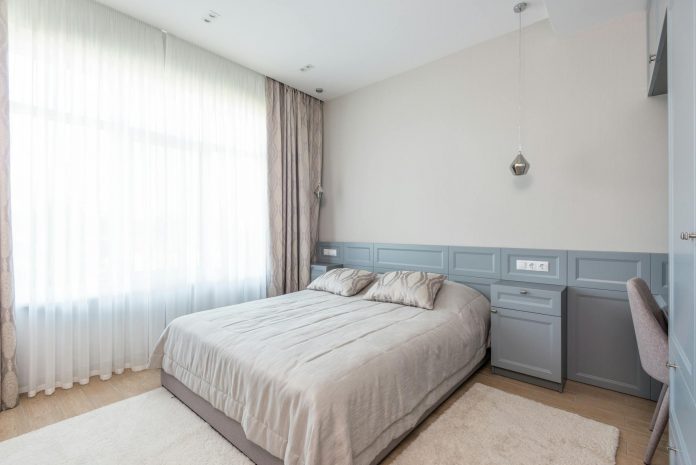
Renting out rooms in your property can be an effective way to generate additional income, but it also brings with it legal and financial responsibilities. Many homeowners underestimate how quickly their property can fall under the regulations for Houses in Multiple Occupation (HMOs). Understanding the rules, requirements, and obligations before letting out spare rooms helps prevent costly mistakes and ensures you remain compliant with the law.
What Qualifies as an HMO Property in the UK
Across the UK, an HMO is defined as a property rented to at least three unrelated people who form more than one household while sharing facilities such as kitchens, bathrooms, or living areas. This classification applies whether or not the owner lives in the property.
Local councils often impose additional rules on top of national requirements. For example, some councils have selective or additional licensing schemes that bring smaller properties into HMO regulation. Because of these regional variations, it is always best to check with your local housing authority before letting extra rooms.
It is also important to recognise that standard mortgage agreements may not allow multi-occupancy arrangements. In such cases, homeowners need to consider financial products like specialist HMO mortgages, which are designed specifically for this type of property. These products take into account the unique lending risks and requirements associated with multi-tenant lettings.
When a Family Home Becomes an HMO
A property can shift from a standard family home to an HMO with only minor changes in occupancy. As soon as three or more unrelated adults live in the property, even if the owner still resides there, the home may fall under HMO rules.
The legal difference between lodgers and tenants plays a role here. Lodgers typically share living space with the homeowner and have fewer rights. Tenants, on the other hand, often have exclusive use of rooms and stronger legal protections. Transitioning from having lodgers to multiple tenants requires careful consideration of tenancy agreements and the additional legal responsibilities this entails.
Licensing Requirements for Room Rentals
Large HMOs, defined as properties housing at least five people from two or more households, must have a mandatory licence issued by the local authority. This licence typically lasts for five years and comes with specific conditions related to safety and management.
Even smaller HMOs may require a licence if the local authority has chosen to extend licensing rules. Failing to secure the necessary licence is a criminal offence that can result in significant fines. Councils may also conduct inspections to verify that safety and management standards are being met. For this reason, obtaining the appropriate licence early helps ensure peace of mind.
Safety Standards and Compliance Obligations
Safety standards in HMOs are stricter than in standard rental properties. Minimum room sizes apply, and any space that does not meet these requirements cannot be used as a bedroom. Fire safety is another critical area. Properties must be fitted with adequate smoke alarms, heat detectors in kitchens, and in larger HMOs, interlinked alarm systems.
Regular inspections of gas appliances and electrical systems are mandatory. Gas appliances must be checked annually by a certified engineer, while electrical installations need inspection at least once every five years. Keeping accurate records of these checks is vital, as failure to provide evidence during an inspection can result in enforcement action.
Financial Considerations for HMO Ownership
Converting a standard home into an HMO carries financial implications that extend beyond licensing. Standard residential mortgages often prohibit multi-tenant letting arrangements. For this reason, most landlords require an HMO-specific mortgage product to remain compliant.
These mortgages generally involve stricter lending criteria, higher deposits, and different valuation processes compared with standard buy-to-let mortgages. Landlords should also factor in the potential for higher insurance premiums, as insurers typically view HMOs as higher risk. Consulting a mortgage broker can help clarify the full costs involved and ensure that financing is set up correctly.
Council tax and utility bills also need careful management. If rooms are rented individually, the landlord is usually responsible for council tax. In cases where the property is let under a single tenancy agreement, tenants may take on the responsibility. Utilities can either be included in the rent or left for tenants to manage directly, but landlords should calculate costs carefully to avoid underestimating household usage.
Legal Responsibilities as a Room-Renting Homeowner
Landlords must meet a range of legal duties when renting rooms. Right to Rent checks are required, meaning you must verify and copy tenants’ identity documents before they move in. These checks confirm that each tenant has the legal right to live in the UK.
Tenancy agreements should reflect the nature of the arrangement. Assured Shorthold Tenancies are appropriate when tenants rent self-contained rooms, while less formal agreements can apply to lodgers who share living space with the owner. Notice periods also vary depending on whether the occupants are tenants or lodgers, so landlords should ensure they follow the correct procedures when ending agreements.
Taking the Right Steps as a Homeowner
Converting your property into an HMO involves more than just letting spare rooms. Each stage, from mortgage arrangements to legal compliance, requires planning and accurate information. Seeking advice from your local authority and reputable financial professionals will help you avoid missteps and keep your property secure.
Ensure Compliance and Protect Your Investment
Renting rooms can provide valuable additional income, but ignoring legal obligations can lead to penalties and financial loss. By securing the right mortgage, obtaining licences, following safety regulations, and preparing clear agreements, homeowners can operate HMOs with confidence.
Take Action for a Smooth Rental Experience
Operating an HMO successfully depends on preparation and compliance at every level. Checking council requirements, securing the correct mortgage, and ensuring your property meets safety standards will all help protect both your investment and your tenants. Before making changes, take time to review government and local authority guidance, and consider speaking with professionals for tailored advice. Careful planning ensures that your venture into room rentals remains profitable and problem-free.
















